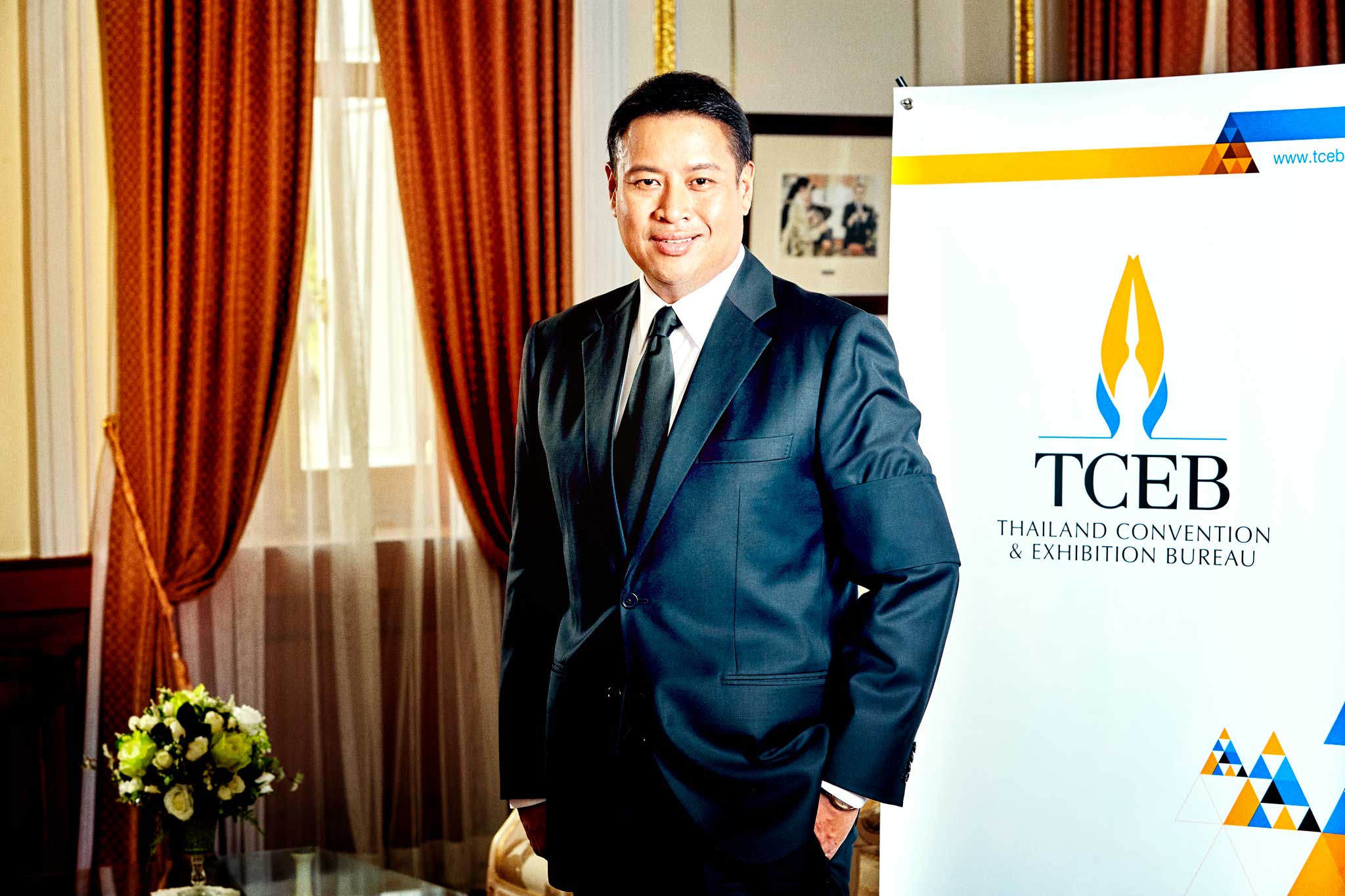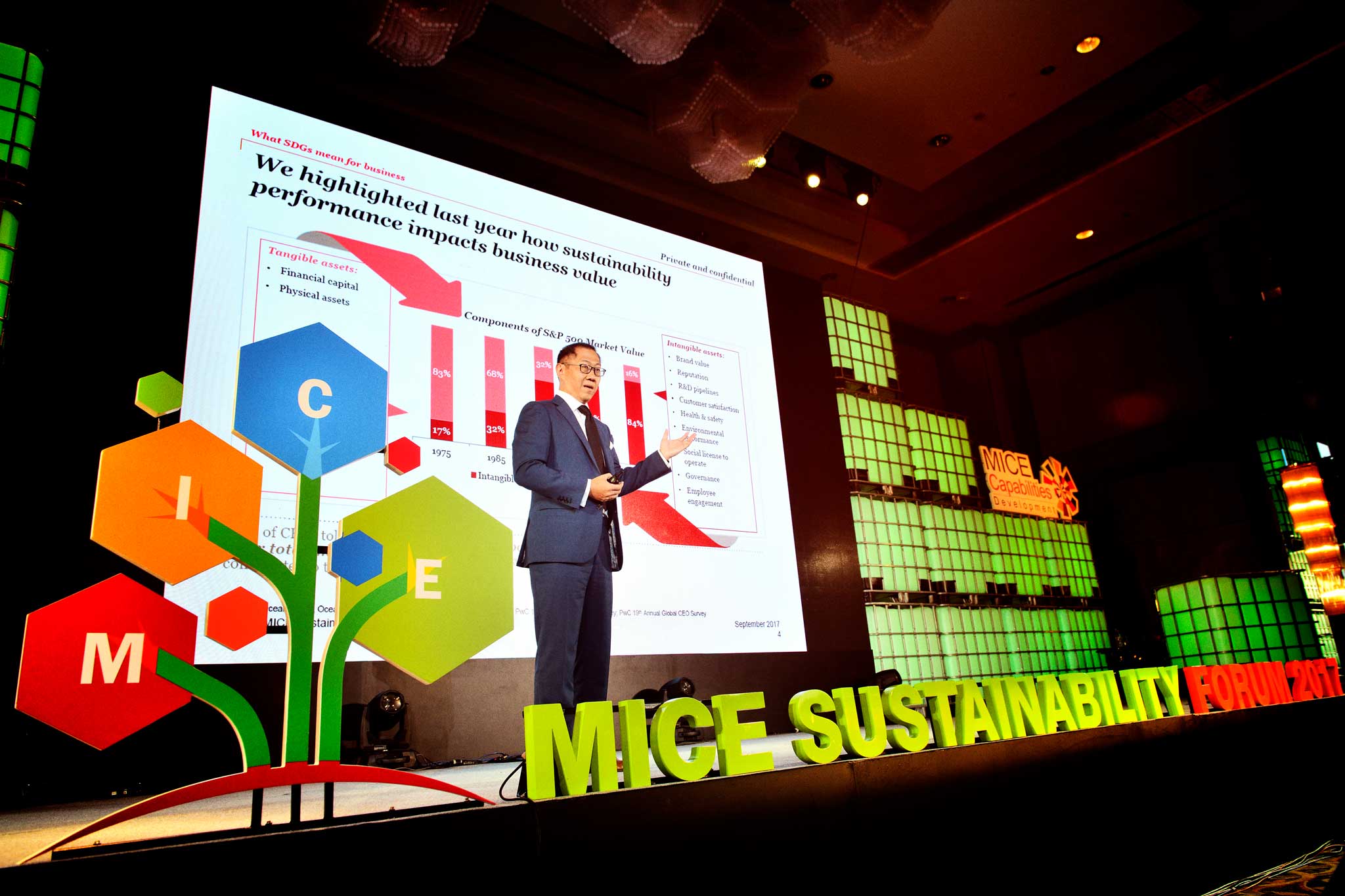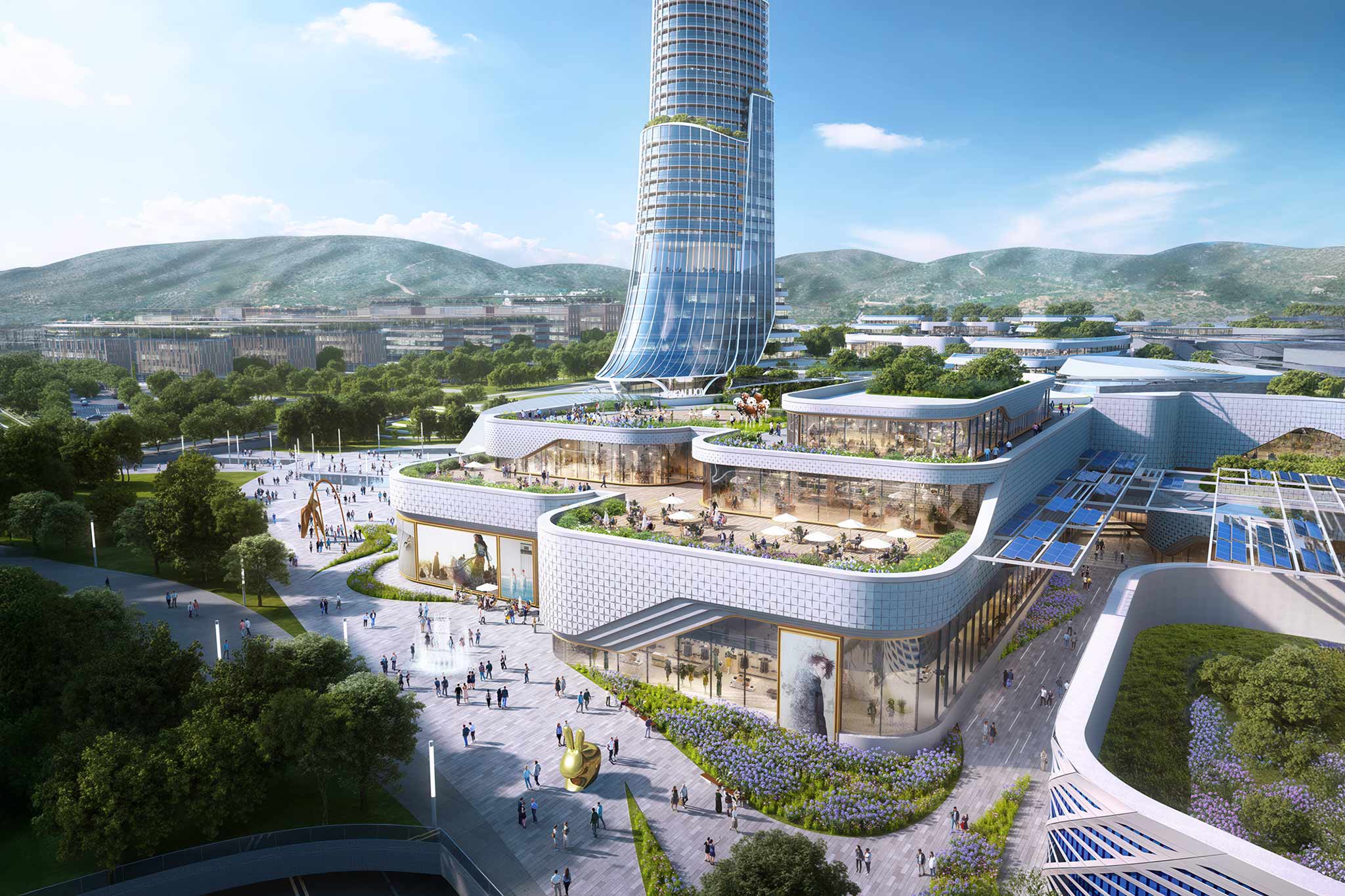Taking up the mantle of both spokesperson and figurehead for the most critical concern of the younger generations, teenage Swedish activist Greta Thunberg has rapidly become a household name and one of the most recognisable faces of our age. Moreover, the passion of her protests on how pressing an emergency climate change has become, and how fervently young people feel about it, has managed to sway the attitude of governments, international organisations and the corporate sector around the world away from a singular focus on growth and towards one of building a new and genuinely sustainable economic framework.
Global in essence and bringing together the world’s leading thinkers, the meeting industry is in a prime position to be at the forefront of helping steer the way to this new framework. Both directly tackling issues of climate change in how it operates and promotes industry standards, as well as helping share ideas and unearth the technological solutions needed to address climate change, and that government and major institutions can endorse and promote. While states with advanced economies, such as those in Scandinavia, northern Europe and the US, have already been able to realise significant progress in making their meetings and the wider industry more sustainable, others with economies that have been rapidly developing have until now been placing notably lesser importance on their sustainable credentials.
Thailand is one such state. Its rampant economic growth over recent decades has come at the cost of equally widespread environmental degradation. The country’s Twelfth National Economic and Social Development Plan (2017–2021) recorded a bleak picture of significant declines for every measurable environmental criterion, from air quality, declining wildlife populations and deforestation to water scarcity, soil erosion and waste issues. Today, the jewel in the country’s meeting industry crown, Bangkok, has become a city deemed at risk of sinking from excessive groundwater removal as a result of its construction boom. The city’s levels of air pollution have been recognised as a significant health issue that will only be alleviated by 2029.
Addressing all of this, the country’s meeting industry, spearheaded by the Thailand Convention and Exhibition Bureau (TCEB), has responded to these challenges and the climate change zeitgeist of the emerging generations. It has of late not only be placing a much greater emphasis on sustainability at the heart of the industry but also setting in motion several commendable initiatives to help bolster its importance.
“The key challenge in the past was the lack of awareness on the importance of sustainability over business operations. Which led to the difficulty of persuading the operators to practice sustainability in their management and operation, and if they did, the question was how such practices would contribute to their commercial viability,” says Khun Chiruit Isarangun Na Ayuthaya, President of TCEB.
“We then simplify and develop our standards to fit with the national context”
“In recent years, the most pressing issues to be resolved are how to make the practice of sustainability sustainable in the long term and translate them into serious-business implications which will encourage them to continue. In terms of organisers, the most pressing issues are how to develop their capability and creative ideas in delivering services that achieve sustainable outcomes, and finding partners throughout the value chain to adopt the practice in the same vein is also another main pressing issue.”
To tackle the scope of such issues hindering sustainable practices from becoming firmly embedded in the country’s meeting industry, the convention bureau took the step of looking towards nations more advanced in terms of both training and education. And to begin developing its tailored platform for Thai meeting industry practitioners as a first step in embracing sustainable practices.
“We are influenced by Danish practices for general sustainability issues and we also work closely on education courses with a variety of US MICE associations,” says Khun Chiruit Isarangun Na Ayuthaya. “However, if earning international credentials is the first step, it will deter Thai MICE operators as it is time-consuming and incurs huge costs. We thought that to make a start with our version, and it would enable them to make a real first stride, like establishing a foundation or a testbed first before they can make a further move.
“In the development process of our standards/awards, it is a requirement that related international standards, guidelines and practices be studied and used as the fundamentals. And we then simplify and develop our standards to fit with the national context. For example, TCEB has developed the national-level MICE sustainability standard named Thailand Sustainable Event Management Standard (TSEMS), which is based on ISO2012, aimed at helping Thai MICE operators to provide their service sustainably systematically.
“In the near future, too many standards at both national and international levels may confuse the operators. For now, we prefer to focus on our two national standards, which are the Thailand MICE Venue Standard (TMVS) and TSEMS. Still, we also have plans to create a TSEMS checklist specially designed for venues.”
In advancing their customised checklist of suitable standards and sustainable practices for the Thai industry, TCEB has taken something of a triple-helix approach. Not only to engaging with the industry’s supply chain partners but also with politicians and the academic sector to ensure that its actions and outcomes are founded on a multi-sectoral approach.
“We have been working with the academic sector by signing MOUs with more than 100 universities across Thailand to make sure that key trends and significant elements of business events have been introduced to our future MICE personnel. We have set up four academic clusters in every key region of Thailand, the central part, the North, the East, the North East and the South, which we are working closely with to advance sustainability. They are sitting as a TSEMS committee, participating and serving as instructors in a variety of TCEB sustainability education courses. Several pieces of research related to MICE sustainability also have been developed and shared.
“Thailand is a serious player … Sustainability will become a brand for the Thai meeting industry”
“With our politicians, we make them realise that sustainability is a global issue as it is a core element of the United Nation’s MSD mission,” says Khun Chiruit Isarangun Na Ayuthaya. “Besides, the MICE industry involves the international market, which is becoming more aware that our industry is a high resource consumer, and corporate social responsibility has been their norm. Responding to the global trend will make the Thai MICE industry stand out and enhance our country’s competitiveness.”
Aspiring to enhance Thai competitiveness further when it comes to its sustainability allure, TCEB has also set its focus on several global sustainability benchmarks that it believes can elevate its standing. It has consolidated them with some unique industry initiatives.
“Among the many education courses, standards and other initiatives, we focus on the United Nations Sustainable Development Goal (SDG) 12.3.1, Global Food Loss and Waste. And we have supported venues in reducing food waste through the ‘Food Waste Prevention’ programme. We also focus on SDG 13, Climate Action through Carbon Neutral Event, a project by which we measure the carbon footprint of events held in Thailand. SDG2.4.1, Proportion of agricultural area under productive and sustainable agriculture, and SDG10.1, reduce income inequalities through our ‘Farm to Functions’ programme.”
“We also take part in the Global Destination Sustainability (GDS) Index. With its four main criteria of environmental, social, supplier performance and DMO/CB performance it has served as one source of our guidelines,” says Khun Chiruit Isarangun Na Ayuthaya. “TCEB utilises these as a guideline for our strategic planning and we are proud that Bangkok has been ranked second in Asia for two years in a row (2018–2019) for a sustainable destination in the GDS-Index with good score in DMO/CB performance criteria. We deem all four criteria highly important, and we can use them to shape the future of sustainability in different cities in Thailand.”
The Farm to Function (2016) and Food Waste Prevention (2018) programmes have proved to be both popular and successful within the industry. The former being a world-first collective community engagement programme by the convention bureau and Thai MICE operators to support local farmers. And the latter a 9-point commitment programme to cut food waste and save on food costs that have had tangible results for some Thailand’s leading hotels that participate in it. Yet these are just two pillars of what has been a wide-ranging MICE Sustainable Destination Master Plan running from 2016–2020 and that is now scheduled for renewal to cover 2020–2024.
“Our meeting industry will be a key player in convincing the world that our industry can boost economic growth and professional development based on sustainability”
There have also been initiatives to promote carbon-neutral events in partnership with the Thailand Greenhouse Gas Management Organisation (TGO), seek optimal matchmaking and value in the supply chain. Also, the continuation of the MICE Sustainability Forum that was established in 2008 to update sustainability trends and best practices. More than a decade after the establishment of this forum and with it having a notable influence on the annual Incentive Travel and Conventions, Meetings Asia (ITCMA) that is annually hosted in Bangkok. The convention bureau launched a new initiative at the end of 2019 that are now feeling confident, and it will take them to the next level in the coming decades.
“After ten years of promoting green meetings that we later developed into sustainability and now believing that the foundation is strong enough for us, we have designed a meeting and incentive (MI) support package, ‘Meet Sustainable’, based on sustainability. It is the first time that we have transformed our development into a marketing product, highlighting our thought-leader role for the MICE industry. We reward MI groups holding events in Thailand with at least two out of the seven required sustainable practices.
“As we are promoting this support campaign worldwide, we deem all markets our priority targets whom we encourage to see with their own eyes that Thailand is a serious player in sustainability. And that we can environmentally contribute to their event’s profile,” says Khun Chiruit Isarangun Na Ayuthaya.
“The main goals in the next five to fifteen years are Thailand becoming globally recognised as a destination championing and successfully practising sustainability in the business events industry. It is becoming one of our strengths in attracting events. We are also setting our sights on all five MICE cities by supporting them to adopt and showcase how they can deliver sustainability. Above all, we are working our way to making Thailand a leading international sustainable MICE destination that is the catalyst for the growth of a sustainable economy, society and environment for the better world.”
The activism of Greta Thunberg and her global message that the ‘house is on fire’ is also aimed at creating a sustainable economy and better world for future generations. What is crucial when the house is on fire is that its occupants and owners are aware that it is and are ready to turn on the hose of sustainable actions to dampen and then gradually extinguish the flames.
“Sustainability has been firmly established as a global issue and addressing it will raise the profile and capability of the Thai meeting industry in the global arena,” says Khun Chiruit Isarangun Na Ayuthaya. “Our meeting industry will be a key player in convincing the world that our industry can boost economic growth and professional development based on sustainability. ‘Sustainability’ will become a brand for the Thai meeting industry.”




